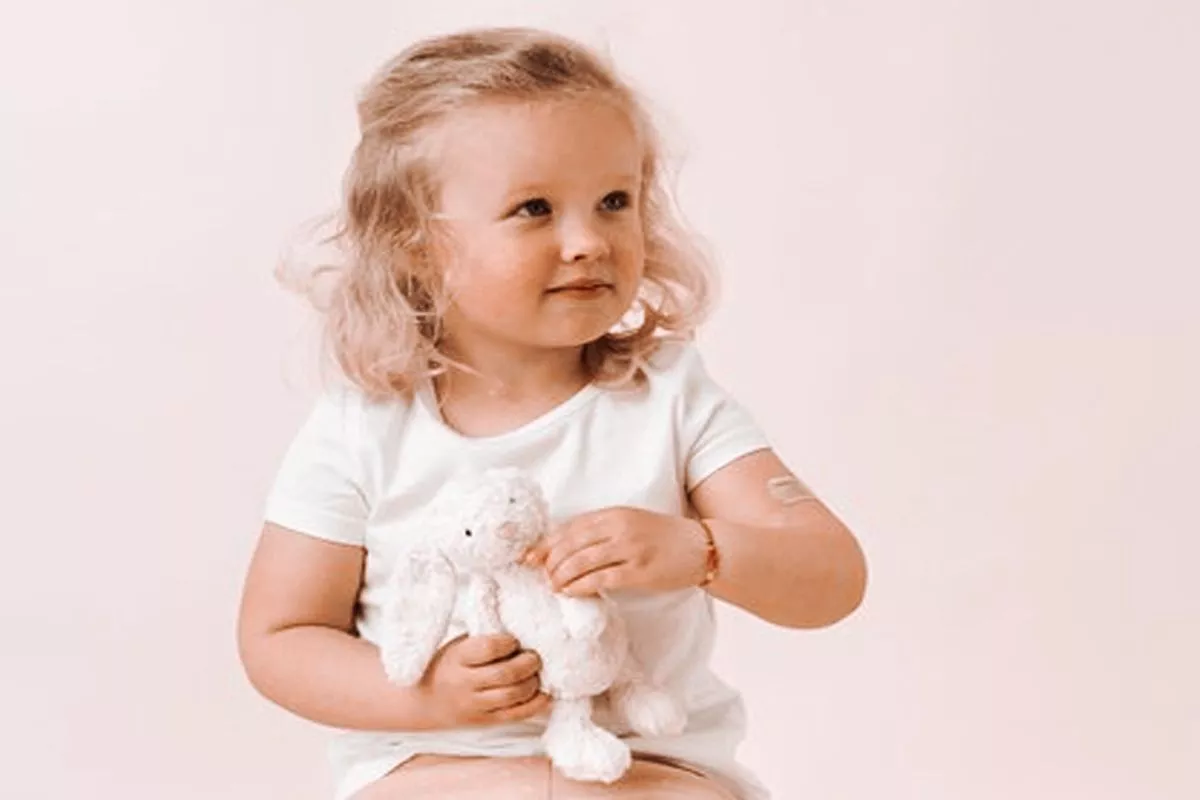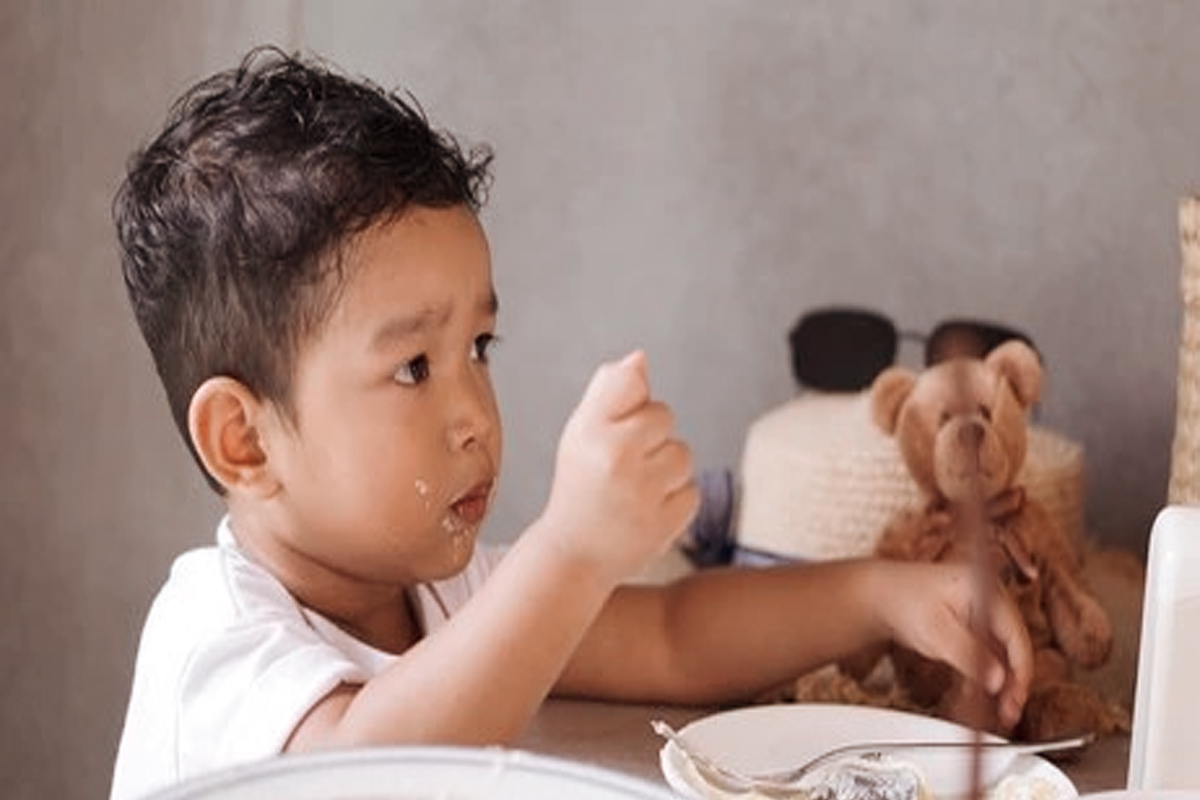In the 11th month of a baby’s life, developmental strides continue to unfold. Many infants are fine-tuning their motor skills, confidently walking or even attempting to climb. Their communication abilities are blossoming, with increased babbling and attempts to mimic words. Encourage their growing independence by introducing a variety of textures in their diet to promote chewing. Safety remains a top priority as their curiosity expands. Regular check-ups with the pediatrician guide nutrition and ensure developmental milestones are met. Cherish these moments as your baby approaches their first birthday, embracing the remarkable journey of growth and discovery.
Table of Contents
ToggleWhat are the Baby’s Development and Milestones on the 11th Month
Motor Skills
- Improved standing and cruising along furniture.
- Some babies may take their first independent steps.
- Fine motor skills advance, allowing for activities like stacking blocks.
Language and Communication
- Expanded babbling with a wider range of sounds.
- May understand simple commands and gestures.
- Attempts to imitate words and gestures.
Social and Emotional Development
- Increasing awareness of familiar faces and strangers.
- Expresses emotions more distinctly, such as joy, frustration, or excitement.
- Begins to display a preference for certain toys or activities.
Exploration and Curiosity
- Demonstrates increased curiosity about the surrounding environment.
- Engages in more purposeful play, exploring cause-and-effect relationships.
Cognitive Development
- Begins to understand object permanence (knowing objects exist even when out of sight).
- Shows interest in simple problem-solving activities.
Dental Care
- May have several teeth by the 11th month, requiring continued dental care.
- Brushing teeth twice a day is essential for oral hygiene.
Emerging Independence
- Displays a desire for independence, wanting to do things on their own.
- May resist being confined or held for extended periods.
Social Interaction
- Enjoys interactive games like peek-a-boo or imitating actions.
- Responds to their name and simple commands.
Safety Awareness
- Requires vigilant supervision due to increased mobility.
- Babyproofing measures should be continually updated.
What are the activities needed to Support your 11-month-old baby’s development
Reading
- Spend time reading books with your baby to stimulate their cognitive and language development
Talking and Singing
- Engage in conversations and sing songs with your baby to help develop their auditory skills and encourage social interaction
Playing with Food
- Allow your baby to play with food, such as mashed fruits or vegetables, to help develop their senses and fine motor skills
Stacking Blocks
- Provide age-appropriate blocks or toys for your baby to stack, which can help support their fine motor skills and cognitive development
Tiny Trampoline
- Set up a small, soft trampoline for your baby to jump on, which can help improve their motor coordination and balance
Crawling Search and Rescue
- Encourage your baby to crawl and explore their environment by setting up a crawling search and rescue game, where you hide toys or small objects and let your baby search for them
Stand and Play
- Encourage your baby to stand and play by providing safe toys or objects that are just out of their reach, which can help improve their balance and coordination
How Much Sleep Does Your 11-Month-Old Baby Need
Nighttime Sleep
- Aim for around 11 to 12 hours of uninterrupted nighttime sleep.
- Establish a consistent bedtime routine to signal it’s time for sleep.
Naps
- Your baby may take two naps during the day.
- Each nap may last 1 to 2 hours, depending on their sleep patterns.
Daytime Sleep Total
- Combining nighttime sleep and naps, your baby should get 14 to 15 hours of sleep in 24 hours.
How to Feed Your 11-Month-Old Baby
Breastfeeding or Formula
- Continue breastfeeding or providing formula as the primary source of nutrition.
- Offer breast milk or formula at least 3–4 times a day, or as per your baby’s cues.
Texture Progression
- Gradually increase the texture of foods as your baby becomes more comfortable.
- Move from purees to soft, chopped, or mashed foods.
Meal Frequency
- Aim for 3 main meals and 1–2 snacks per day.
- Let your baby decide how much to eat, respecting their hunger and fullness cues.
Finger Foods
- Encourage self-feeding with finger foods.
- Offer small, bite-sized pieces of soft fruits, vegetables, and cooked proteins.
Balanced Diet
- Include a mix of fruits, vegetables, grains, protein, and dairy.
- Offer iron-rich foods like meat, poultry, or fortified cereals.
Limit Sugar and Salt
- Minimize added sugar and salt in your baby’s diet.
- Choose whole foods and limit processed or sugary snacks.
Hydration
- Offer water in a sippy cup during meals.
- Limit fruit juices and avoid sugary beverages.
Supervise During Meals
- Stay with your baby during meals to monitor their eating and prevent choking.
- Encourage a positive mealtime environment.
Allergen Awareness
- Introduce common allergens, such as peanuts and eggs, one at a time.
- Watch for any signs of allergies and consult with the pediatrician if needed.
Day in the Life of an 11-Month-Old Baby
Feeding
- Babies this age need at least 750 calories per day
- About 24 ounces of breast milk or formula per day
Sleeping
- 11 hours at night
- 2 daily naps that add up to 3-4 hours
- Early waking is often caused by hunger
Bathing
- Can be done 2-3 times a week
- Enjoy a few moments of cozy snuggles before getting dressed
Changing Diapers
- Change diapers as soon as you notice the baby has soiled their diaper or when they show signs of needing a change, such as squatting, grunting, or a strong smell
- Use toys, songs, or play music to distract the baby during diaper changes
Playing
- Going on outings to parks, libraries, or children’s museums can provide new experiences and help develop your baby’s senses
- Playing music or engaging in rhythmic activities can help develop your baby’s auditory skills and sense of rhythm
Fun Facts
- At this age, babies are becoming more active and mobile, building strength in their leg muscles through activities like scooting, crawling, and pulling themselves up to stand
- They are developing their communication skills and may engage in a regular back-and-forth conversation, point at objects, and understand simple instructions
Baby’s Health at 11-Month-Old
Routine Check-ups
- Schedule regular visits to the pediatrician for check-ups and vaccinations.
- Discuss any concerns or observations about your baby’s development.
Vaccinations
- Keep track of the recommended vaccination schedule.
- Consult with the pediatrician regarding any missed or upcoming vaccines.
Nutrition
- Offer a balanced diet with a variety of fruits, vegetables, grains, proteins, and dairy.
- Ensure age-appropriate portion sizes and monitor for any signs of allergies.
Hydration
- Provide water in a sippy cup during meals to stay adequately hydrated.
- Limit sugary drinks and avoid introducing regular cow’s milk until advised by the pediatrician.
Teething
- Monitor teething symptoms and provide appropriate teething toys.
- Consult with the pediatrician if there are signs of discomfort or if you have concerns.
Illness Signs
- Be attentive to signs of illness, such as fever, changes in behavior, or persistent discomfort.
- Contact the pediatrician if you notice anything unusual.
Items Needed on the 11th Month of Your Baby
Diapers and Wipes
- Ensure an ample supply of diapers and wipes.
- Consider transitioning to training pants if beginning potty training.
Baby Clothes
- Have a variety of comfortable clothes suitable for the changing weather.
- Include onesies, sleepers, and outdoor wear.
Feeding Essentials
- Sippy cups for water.
- Baby-friendly utensils and plates for self-feeding.
- Bibs to minimize mess during meals.
Baby Food and Snacks
- Stock up on a variety of age-appropriate baby food jars or pouches.
- Keep healthy snacks like soft fruits and crackers on hand.
Baby Formula or Breastfeeding Supplies
- Stock up on breastfeeding supplies, such as nursing pads.
Baby Gear
- Stroller for outings.
- Baby carrier or sling for hands-free carrying.
- Lightweight, portable high chair for meals.
Babyproofing Items
- Safety gates for stairs.
- Outlet covers and cabinet locks.
- Soft corner protectors for furniture.
Toys and Developmental Items
- Age-appropriate toys for sensory and motor skill development.
- Soft books for interactive reading.
- Stacking cups or blocks for building.
Sleep Essentials
- Comfortable crib or cot with fitted sheets.
- Sleep sack or wearable blanket for bedtime.
Health and Hygiene
- Baby-friendly toiletries, including shampoo and body wash.
- Infant nail clippers and a soft brush.
First Aid Kit
- Basic first aid supplies, including a baby-safe pain reliever and a thermometer.
Life as a Parent on Baby’s 11th Month
As you enter the eleventh month of your baby’s life, the journey of parenthood continues to evolve with new developments and delightful experiences. Let’s delve into the intricacies of this stage, ensuring a positive and enriching environment for both you and your growing child.
Adventurous Explorations
- At this stage, your baby is likely to engage in more adventurous explorations. Encourage safe curiosity by providing age-appropriate toys and supervised spaces for play. Foster a sense of wonder as they discover the world around them.
Communication Flourishes
- Communication skills are blossoming. Engage in interactive conversations, respond to their attempts at expressing themselves, and introduce a variety of words. This lays the groundwork for enhanced language development.
Developing Motor Skills
- Motor skills are becoming more refined. Provide activities that stimulate both fine and gross motor skills, such as stacking blocks or playing with age-appropriate puzzles. Celebrate their achievements as they master new physical abilities.
Independence Takes Root
- Independence continues to grow. Encourage self-feeding and let them participate in simple tasks. This fosters a sense of autonomy and builds confidence in their abilities.
Emotional Expressions
- Your baby may show more distinct emotional expressions. Foster a secure attachment by responding to their emotions with empathy and understanding. This strengthens the emotional bond between you and your child.
Social Interactions Intensify
- Social interactions become more dynamic. Arrange playdates to nurture social skills, sharing, and cooperation. Monitor these interactions to ensure positive and enriching experiences.
Safety Awareness
- As your baby becomes more mobile, reinforce safety measures. Baby-proofing should adapt to their newfound abilities. Regularly assess the environment to eliminate potential hazards.
Checklist for the 11th Month of Your Baby
Communication Skills
- Encourage babbling and respond to their attempts at communication.
- Introduce new words and repeat them often.
Motor Skills
- Support standing and cruising along furniture.
- Provide toys that encourage crawling and walking.
Social Development
- Arrange playdates for interaction with other babies.
- Foster sharing habits through gentle guidance.
Health Check
- Schedule a visit to the pediatrician for routine check-ups.
- Stay updated on vaccinations and discuss any concerns.
Reading Time
- Read books together to enhance language skills.
- Point to pictures and name objects.
Independence Building
- Allow the baby to feed themselves with finger foods.
- Encourage self-soothing and independent play.
Emotional Support
- Respond promptly to the baby’s cues and needs.
- Provide affection and positive reinforcement.
Last Updated on January 15, 2024
Written By
With a solid foundation in family dynamics, child development, and a knack for assessing products, our content is built on a strong grasp of our topics. We use trustworthy sources, seek advice from experts, and stay current with the latest happenings in our fields. We always give credit to our sources, reveal any possible conflicts of interest, and deliver info in a truthful and unbiased way. Follow us on Facebook or join our Facebook Group.
Start your journey to confident parenting
Join over 2,000+ parents who receive free practical advice and tips from Joyful PH. Unsubscribe anytime.
You may also like
Toddler’s Development and Milestones at 24th Month
A two-year-old's growth and achievements at 24 months are remarkable. Toddlers…
Toddler’s Development and Milestones at 23rd Month
In the 23rd month, toddlers exhibit significant developmental strides. Their…
Toddler’s Development and Milestones at 22nd Month
At 22 months, toddlers make strides in independence, speech, and motor skills.…
Toddler’s Development and Milestones at 21st Month
During the 21st month, toddlers continue their dynamic development. Language…
Toddler’s Development and Milestones at 20th Month
At 20 months, toddlers exhibit remarkable progress. Their language skills…
Toddler’s Development and Milestones at 19th Month
A toddler at 19 months undergoes significant development. Language skills…







